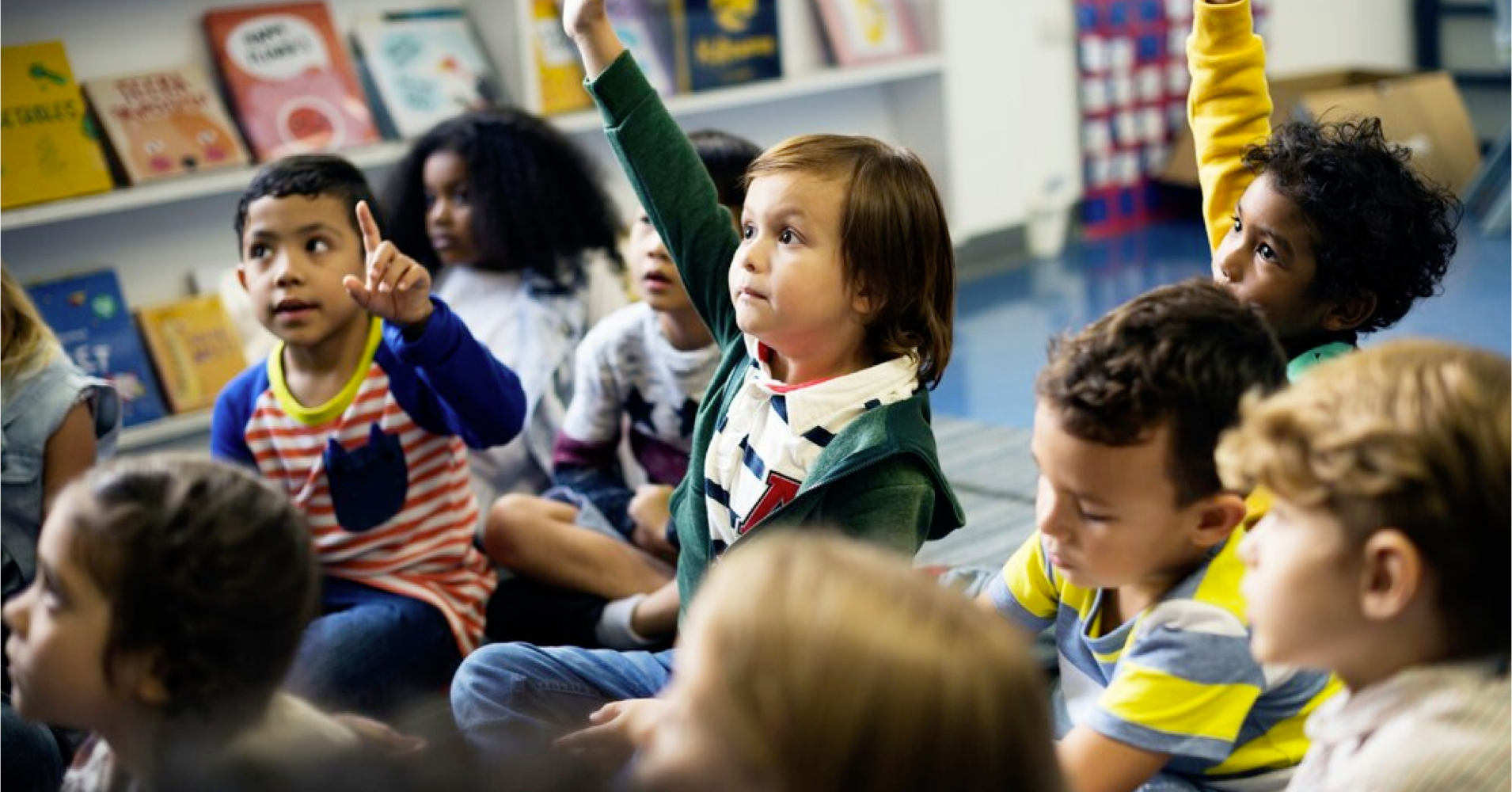Nurturing Minds: The Power and Importance of Early Childhood Education

Introduction: The Foundation of a Bright Future
Early childhood education (ECE) is the cornerstone of a child's development, setting the stage for lifelong learning and success. During these formative years, children are like sponges, absorbing knowledge, skills, and values that will shape their perspectives and capabilities. This crucial phase lays the foundation for their cognitive, social, emotional, and physical growth, making early childhood education a vital investment in our society's future.
The Significance of Early Childhood Education
Early childhood education goes beyond mere childcare; it's a comprehensive approach to holistic development. Research consistently demonstrates that children who have access to quality early education programs experience long-term benefits in various aspects of life. Let's delve into some of the key reasons why early childhood education is so significant:
Brain Development: The early years of a child's life are marked by rapid brain development. High-quality early education environments stimulate brain growth and optimize neural connections, setting the stage for advanced cognitive abilities and academic success later in life.
Social and Emotional Skills: Early childhood education nurtures essential social and emotional skills such as empathy, cooperation, and self-regulation. These skills contribute to healthy interpersonal relationships, emotional well-being, and effective problem-solving throughout life.
Academic Readiness: A solid early education lays the groundwork for academic success. Children exposed to age-appropriate educational activities develop essential pre-reading, language, and numeracy skills that provide a head start when they enter formal schooling.
Long-Term Achievement: Numerous studies highlight the correlation between participation in high-quality early education programs and improved long-term outcomes, including higher graduation rates, better job prospects, and reduced involvement in criminal activities.
Equity and Opportunity: Early childhood education plays a pivotal role in addressing socio-economic disparities. By providing equal access to quality education at a young age, we pave the way for a more equitable society, where every child has the chance to reach their full potential regardless of their background.
The Role of Early Childhood Educators
Early childhood educators are the architects of a child's early learning experiences. Their influence goes far beyond teaching ABCs and 123s; they shape children's attitudes toward learning, foster curiosity, and create a safe and nurturing environment for exploration. The role of an early childhood educator requires a unique blend of skills, knowledge, and dedication:
Pedagogical Expertise: Early childhood educators possess a deep understanding of child development theories and best practices in teaching young learners. They design activities that are developmentally appropriate and engaging, supporting children's growth in various domains.
Holistic Approach: These educators embrace a holistic approach, addressing not only cognitive development but also social, emotional, and physical well-being. They create an environment where children feel secure to express themselves, fostering self-confidence and a positive self-image.
Cultural Sensitivity: Early childhood educators celebrate diversity and create inclusive classrooms where children from different backgrounds feel valued and respected. They incorporate cultural elements into the curriculum, promoting cultural awareness and understanding.
Partnerships with Families: Collaboration with parents and guardians is a cornerstone of early childhood education. Educators establish open lines of communication, sharing insights into a child's progress and development. This partnership ensures consistency between home and school environments.
Lifelong Impact: Early childhood educators understand that their work has a profound and lasting impact. They have the privilege of instilling a love for learning that sets children on a positive trajectory, contributing to their success not only in school but also in life.
The Role of Play in Early Childhood Education
Play is a central component of early childhood education. Contrary to misconceptions, play is not frivolous; it's a vital avenue for learning and development. Play-based learning enhances children's cognitive skills, creativity, social interactions, and emotional regulation. Early childhood educators leverage play in various ways:
Cognitive Development: Play encourages critical thinking, problem-solving, and decision-making. When children engage in imaginative play, they construct scenarios, create characters, and develop narratives that exercise their cognitive abilities.
Language Acquisition: Play fosters language development as children engage in conversations, negotiate roles, and express their thoughts and feelings. Through play, they expand their vocabulary, practice sentence structures, and improve communication skills.
Social Skills: Play enables children to interact with peers, learn cooperation, and develop essential social skills like sharing, turn-taking, and conflict resolution. It lays the groundwork for positive relationships and effective collaboration in the future.
Emotional Regulation: Play provides a platform for children to explore and express their emotions. Whether through role-playing or engaging with sensory activities, children learn to manage their feelings and develop emotional resilience.
Creativity and Imagination: Play nurtures creativity and imagination, allowing children to invent scenarios, experiment with ideas, and explore new possibilities. This fosters innovative thinking and a lifelong passion for exploration.
The Role of Technology in Early Childhood Education
In today's digital age, technology has become an integral part of our lives, including early childhood education. Thoughtfully integrated technology can enhance the learning experience and prepare children for the tech-driven world they will navigate. However, its use must be guided by careful considerations:
Interactive Learning Tools: Educational apps and digital resources can offer engaging and interactive learning experiences. These tools can reinforce concepts, promote skill development, and cater to diverse learning styles.
Digital Literacy: Introducing age-appropriate technology in early childhood education helps children develop digital literacy skills. They learn to navigate digital interfaces, access information, and use technology responsibly.
Parent Engagement: Technology facilitates communication between educators and parents. Digital platforms can provide real-time updates on a child's progress, share resources, and encourage parent involvement in their child's learning journey.
Global Connections: Technology connects young learners with peers from around the world, promoting cross-cultural understanding and global awareness. Virtual exchanges and collaborative projects broaden children's horizons beyond their immediate surroundings.
Balancing Act: While technology offers benefits, it's crucial to strike a balance between digital and hands-on experiences. Early childhood educators ensure that technology complements, rather than replaces, traditional learning methods.
Recommended Online Resources for Early Childhood Education
Debunking Migration Myths for Early Childhood Teachers!
Embark on a journey to demystify migration myths in the realm of Early Childhood Education with our comprehensive course, designed to equip Early Childhood Teachers with the knowledge and resources needed to navigate the migration process effectively. Whether you're considering a move to Australia or seeking to stay informed about migration updates, this course offers valuable insights and practical guidance.
Course highlights:
AITSL Skills Assessment: Clear breakdown of criteria for Early Childhood Teachers' skills assessment.
Stay Updated: Stay informed with the latest migration updates in Australia.
Expert Migration Assistance: Access contact information for professional migration assistance.
Bite-Sized Learning: Mini-courses and quick info on TikTok and Instagram.
Visa Requirements: Direct link to Department of Home Affairs' visa requirements.
Teach your Child to Read and Write
This course empowers parents and caregivers to foster early literacy skills in their children. Over 20 engaging video lessons led by National Board Certified Teacher and Bluegrass Learning Senior Education Specialist, Bobbie Noall, guide participants through supporting their child's reading and writing journey. Learn how school expectations influence future academic success, explore effective home-based strategies, and cultivate a love for learning. Ideal for busy parents, childcare providers, and educators of early elementary age children. Build a solid literacy foundation and ignite a lifelong passion for reading and writing.
Course highlights:
Expert Guidance: Led by Bobbie Noall, a National Board Certified Teacher with 15+ years of classroom experience.
Early Literacy Insights: Understand your child's school expectations and their future academic impact.
Home Learning Strategies: Discover simple, enjoyable ways to enhance early literacy development.
Parent-Friendly Language: Lessons are designed for busy parents, caregivers, and educators.
Strong Literacy Foundation: Equip your child with essential reading, writing, and love for learning.
Master Course in Early Childhood Education
Explore the world of early childhood education with the Master Course. Delve into its vital significance and uncover the diverse roles and responsibilities within the field. This comprehensive program covers key aspects such as objectives, themes, teaching methods, and interview preparation. Understand why early childhood education matters and embark on a journey to become a skilled educator. By the end of the course, you'll be equipped with insights into human development and empowered to pursue rewarding careers with your early childhood education credentials.
Course highlights:
In-depth exploration of early childhood education's significance.
Comprehensive understanding of roles, responsibilities, and key areas.
Insight into becoming an effective early childhood educator.
Practical teaching methods and classroom management techniques.
Preparation for successful early childhood education job interviews.
Conclusion
Early childhood education is a dynamic and influential field that shapes the trajectory of young lives. It's a period of immense growth, curiosity, and potential, and educators play a pivotal role in nurturing these qualities. As we invest in high-quality early childhood education, we sow the seeds for a brighter future, where each child's unique abilities are celebrated, and their dreams are empowered to flourish. By recognizing the power of early education and fostering a supportive environment, we pave the way for a generation of learners who are equipped to navigate the complexities of the world with confidence, resilience, and a love for learning.





